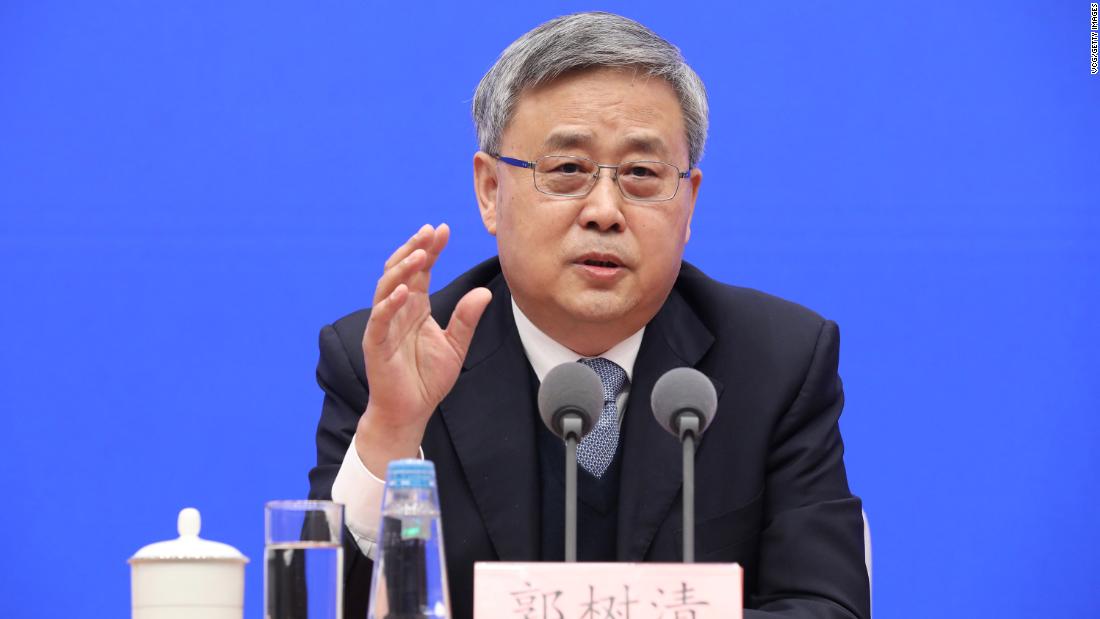Guo Shuqing, the head of the Communist Party at the People’s Bank of China, told reporters in Beijing on Tuesday that confidence in Chinese markets could be affected by volatility around the world.
“We are really afraid that the bubble of foreign financial assets will burst someday,” said Guo, who is also chairman of the China Banking and Insurance Regulatory Commission.
Guo echoed these fears, adding that the highs in the US and European markets do not reflect the underlying economic challenges that both regions face as they try to recover from the brutal pandemic recession.
“Such [a] The bursting of the bubble could trigger a substantial flow of foreign capital to China, “analysts at Mizuho Bank wrote in a research note, adding that the regulator said it would study” effective measures “to encourage the free flow of capital, preventing shocks in financial markets. A huge fund rush to China could destabilize the world’s second largest economy by rapidly inflating its currency, assets and prices.
The Chinese banking leader also said he is concerned that China’s real estate sector is also at risk of volatility – an issue that analysts say implies that the country may be ready to tighten the stock market strings. President Xi Jinping said at an economic conference late last year that the country needs to stabilize the housing market in 2021, and Beijing has already taken steps to do so. In December, regulators issued rules aimed at limiting loans to the real estate sector.
Local governments in China, however, have stepped up measures since the beginning of this year to cool the market, restricting purchases and controlling developers.
Shaken markets
“This indicates how sensitive the markets are to the policy accommodation that is being withdrawn,” wrote Stephen Innes, Axi’s chief global markets strategist, in a note on Tuesday. “He also points out that central banks will operate at different speeds to get rid of last year’s crisis.”
Guo’s comments also reflect Beijing’s concerns about the risk that increasing debt poses to the economy. Real estate loans represented almost 30% of total loans issued in yuan by the end of 2020, according to data from the central bank.
And some in China have already suggested that it is time for the country to cut fiscal and monetary support – including former finance minister Lou Jinwei, who in December said a “gradual exit” from flexible policy will help to stabilize and, eventually, reduce the proportion of China’s debt.
